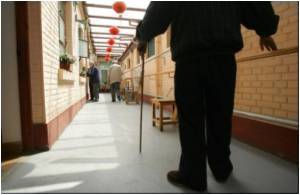If you want to know how long grandpa is going to live, check his pace of walking. A report appearing in Wednesday's Journal of the American Medical Association found a strong correlation

"Walking requires energy, movement control, and support and places demands on multiple organ systems, including the heart, lungs, circulatory, nervous, and musculoskeletal systems," the researchers wrote. "Slowing gait may reflect both damaged systems and a high energy cost of walking."
All studies had participants walk at their usual pace and from a standing start. The walk distance varied from eight feet (2.4 meters) to six meters (19 feet).
"Predicted years of remaining life for each sex and age increased as gait speed increased," the researchers said.
"Gait speeds of 1.0 meter (3.3 feet) per second or higher consistently demonstrated survival that was longer than expected by age and sex alone. In this older adult population the relationship of gait speed with remaining years of life was consistent across age groups."
The researchers found that gait speed was associated with differences in the probability of survival at all ages in both sexes, but was especially notable after age 75.
"Gait speed has potential to be implemented in practice, using a stop watch and a four-meter (13 feet) course.... Gait speed may be a simple and accessible indicator of the health of the older person."
"It represents a global marker of health status, and an optimal secondary and complementary outcome to support research findings, clinical decisions, or both aimed at modifying more pragmatic end points," he wrote.
"Future research will be needed to determine whether gait speed has the potential to change the way in which a patient is defined as geriatric."
Source-AFP
 MEDINDIA
MEDINDIA



 Email
Email










